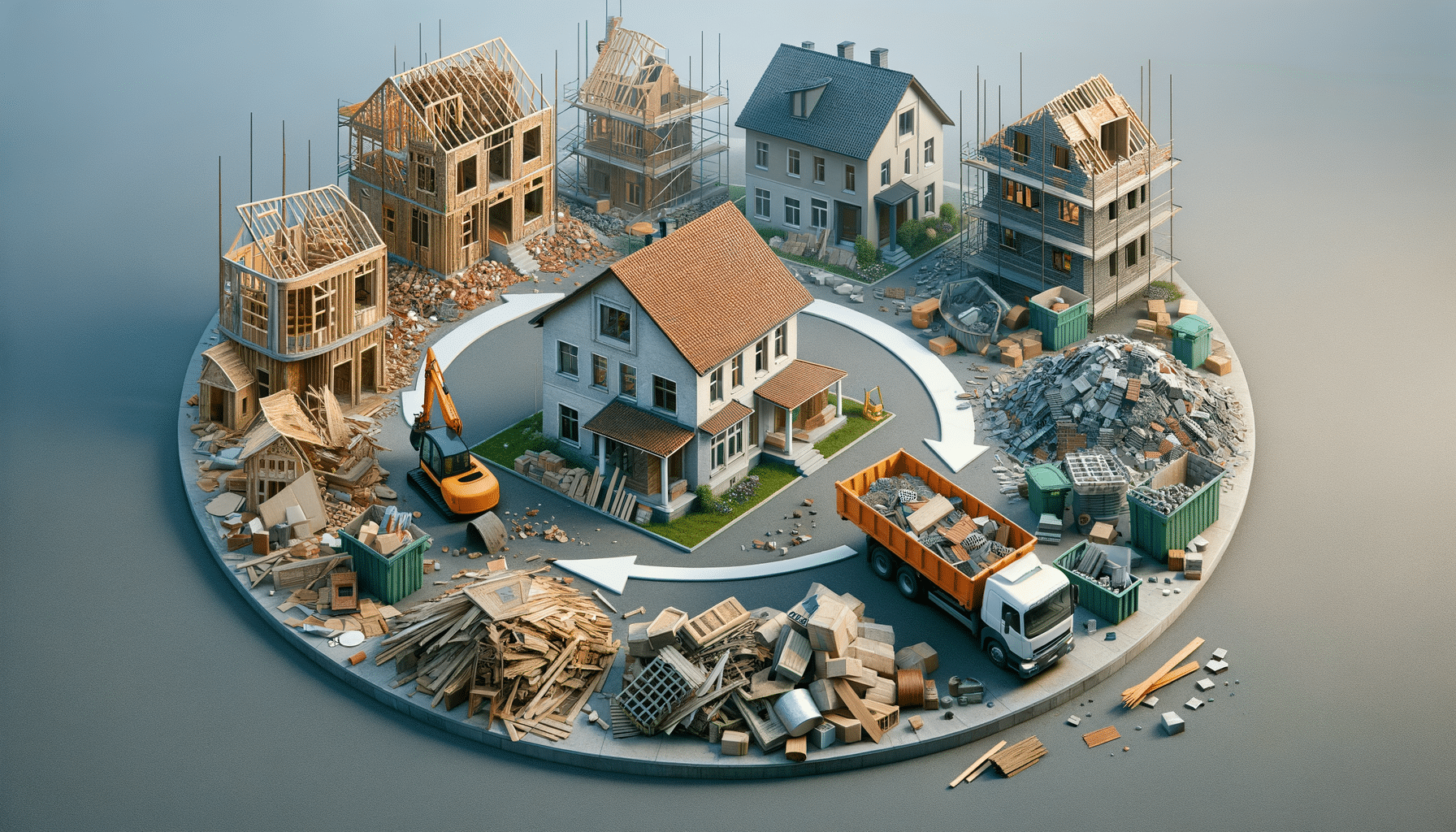
Housing Recycling Helps Reduce Construction Waste
Introduction to Housing Recycling
In the modern world, sustainability is becoming an increasingly important topic. One area where this is particularly evident is in the construction industry, where housing recycling is gaining traction as a viable solution to reduce waste and promote environmental health. Housing recycling involves the reuse of materials from old or demolished buildings, offering a sustainable alternative to traditional construction methods. This practice not only helps in minimizing landfill waste but also conserves natural resources, ultimately contributing to a cleaner and greener environment.
The Environmental Benefits of Housing Recycling
The environmental impact of construction waste is significant, with millions of tons of debris ending up in landfills every year. Housing recycling addresses this issue by diverting materials from the waste stream. Key environmental benefits include:
- Reduced Landfill Waste: By recycling materials such as wood, metal, and concrete, less waste is sent to landfills, reducing the environmental footprint.
- Conservation of Resources: Recycling reduces the need for new raw materials, conserving resources like timber and minerals.
- Lower Carbon Emissions: The process of extracting and processing new materials is energy-intensive. Recycling reduces the energy consumption and carbon emissions associated with these processes.
Through these benefits, housing recycling contributes to a more sustainable construction industry, aligning with global efforts to combat climate change and environmental degradation.
Economic Advantages of Recycling Building Materials
Beyond environmental benefits, housing recycling also offers economic advantages. The reuse of building materials can lead to significant cost savings, both for construction companies and homeowners. Some of the economic benefits include:
- Cost Savings: Recycled materials are often less expensive than new ones, reducing overall project costs.
- Job Creation: The recycling industry creates jobs in various sectors, from material collection to processing and resale.
- Increased Property Value: Homes built with recycled materials can be marketed as eco-friendly, potentially increasing their value.
These economic incentives make housing recycling an attractive option for developers and homeowners looking to build sustainably while also managing costs effectively.
Challenges and Solutions in Housing Recycling
While housing recycling presents numerous benefits, it also faces several challenges. One major hurdle is the lack of awareness and understanding of the recycling process among builders and consumers. Additionally, the variability in the quality of recycled materials can pose a challenge. However, these issues can be addressed through:
- Education and Training: Providing training programs for builders and contractors can help increase awareness and expertise in using recycled materials.
- Quality Standards: Establishing standards for recycled materials ensures consistency and reliability, encouraging their use in construction projects.
- Incentives and Policies: Government incentives and policies can promote the use of recycled materials, making them a more viable option for builders.
By addressing these challenges, the construction industry can further embrace housing recycling as a standard practice, paving the way for a more sustainable future.
Future Prospects of Housing Recycling
The future of housing recycling looks promising, with advancements in technology and increased awareness driving its adoption. As more countries implement stricter environmental regulations, the demand for sustainable building practices is expected to rise. Innovations in recycling technologies are making it easier and more efficient to recycle a wider range of materials, further enhancing the appeal of housing recycling.
Looking ahead, housing recycling is poised to play a crucial role in the transition towards sustainable construction practices. As communities and industries continue to recognize the benefits, both environmental and economic, the integration of recycling into mainstream building practices is likely to accelerate, contributing to a more sustainable and resilient built environment.


